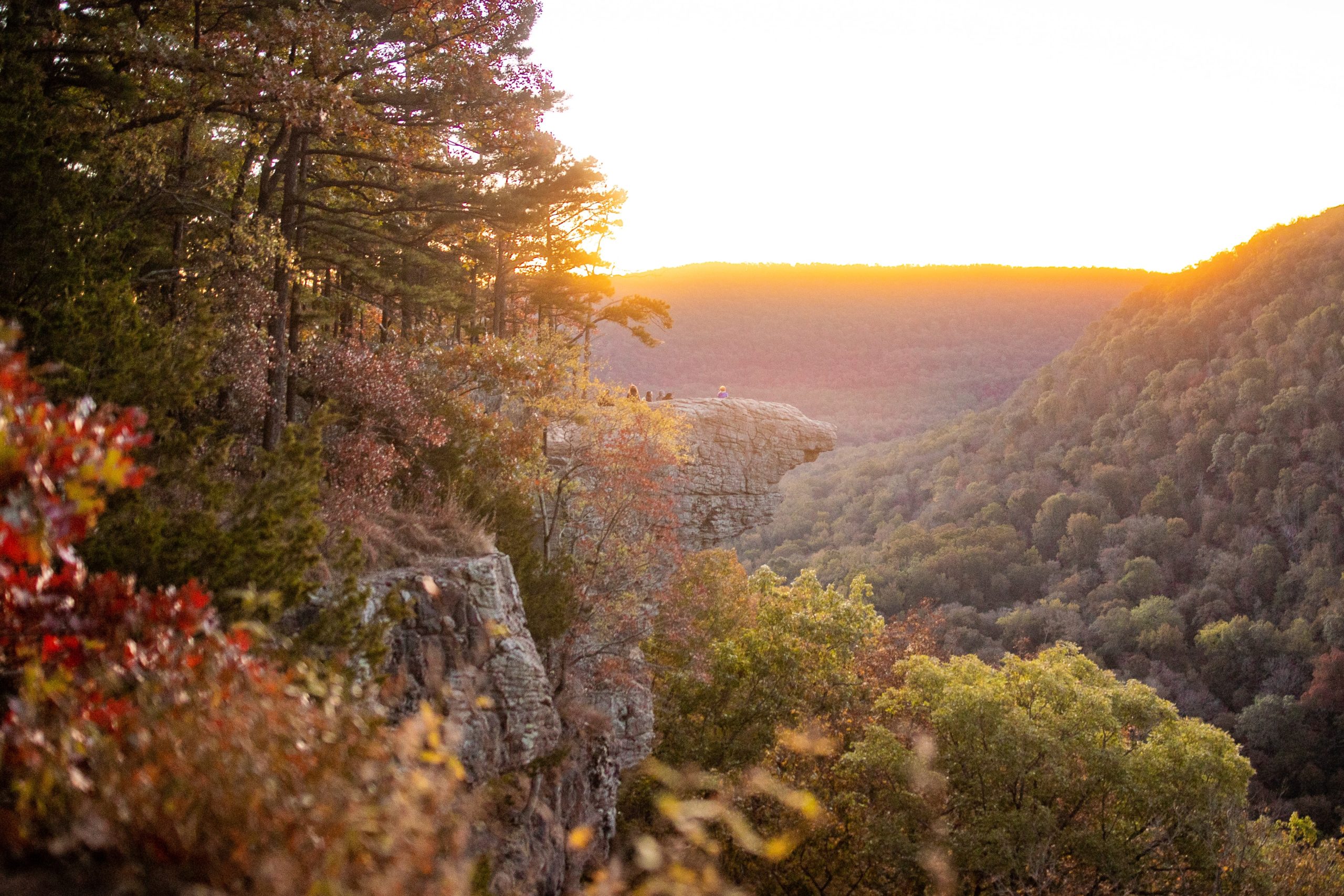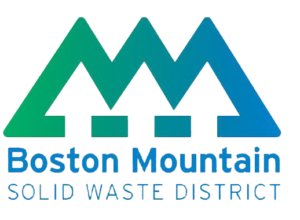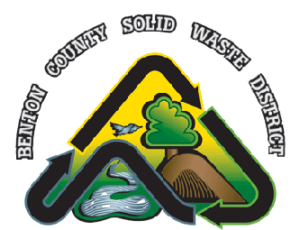Arkansas ranks 42nd among the 50 states in recycling its aluminum cans, cardboard boxes and other recyclables, according to a nationwide study released earlier this year.
We successfully recycle about one-fourth of our recyclable containers and packaging, according to “The 50 States of Recycling,” which measures a 2018, pre-pandemic baseline using federal, state and local data. That’s about one-third the rate of the top state, Maine. On the other hand, we’re in the top 10 for how much of these recyclables that we trash: about 230 pounds per person per year.
To be clear, the materials Arkansans put in our recycling carts and bins by and large are being recycled. Our recycling programs are trustworthy and are working, as far as they go.
This is about the bottles and cans that don’t make it to those recycling programs and go to our landfills instead. In other words, assuming our consumption habits stayed the same, we could more than triple how much we recycle if we just put this stuff in the right place (and ran the programs needed to collect and move it). 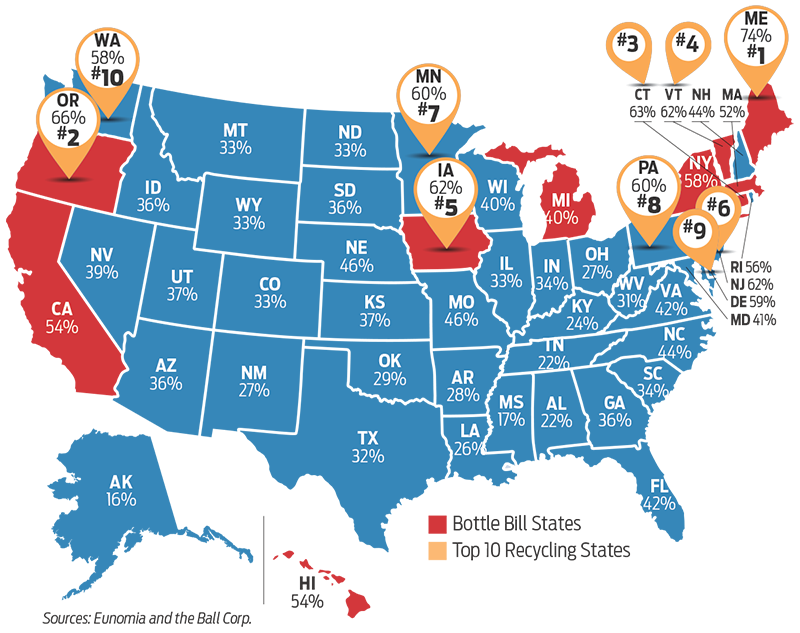
Eunomia, a U.K.-based environmental and supply chain consulting group, put the report together for Ball Corporation, a U.S. maker of aluminum cans and other containers.
Here are the highlights:
- The report focused on what are called common containers and packaging materials: aluminum and steel cans, plastic bottles and other containers, glass bottles and jars, and cardboard. That leaves out other things that can be recycled, like electronics and batteries, but gives a baseline to compare efforts and programs among the states.
- The report didn’t look just at what’s collected, since some portion of collections is either garbage, contaminated by food or other substances, or otherwise lost in the sorting and preparing process. Instead it focused on what genuinely goes into new products.
- Maine was the top of the pile, re-using almost three-quarters of its recyclable containers. Oregon, Connecticut, Vermont, Iowa, New Jersey, Minnesota and Pennsylvania all hit at least 60%.
- Maine and several of the other top recycling states have recycling policies such as a container deposit law, or “bottle bill,” which typically gives back a nickel or dime for every can and bottle residents recycle.
- The best states also tend to have the most comprehensive and up-to-date recycling data.
- Recycling brings environmental benefits compared to extracting and manufacturing new material, though not all materials are equal. Recycling a ton of aluminum saves three times as much greenhouse gas emissions as a ton of cardboard, for example. And reducing consumption and production in the first place reduces greenhouse gas emissions the most.
- Eunomia recommended that Arkansas expand its data collection and undertake a waste characterization study to learn exactly what its trash is made of.
Close to home
NWA Recycles is here to help bump up our region’s recycling rates and address other issues raised by Eunomia’s report. We and our partners have recognized the need for data in particular. Some communities track their recycling separately, but we don’t yet have a clear idea of how much Northwest Arkansas recycles as a whole or where it all goes. A regional study released this year estimated our local programs catch about 35% of recyclable containers but had to use patchy data and outside examples to arrive at that figure.
That’s a problem. Businesses that might use our recyclables in their products need to know how much we have available before they set up shop, and the rest of us need to know what our communities are achieving now to set even higher goals for the future.
The two-year grant from Walmart that helped launch NWA Recycles also includes the creation of an annual regional recycling report that will fill this gap. Starting next spring, we’ll compile our different programs’ data in one place for the first time.
You can help this happen by telling your recycling programs and elected leaders that you want them to join this regional effort. Find contact information on city websites and in person at your local drop-off centers.


